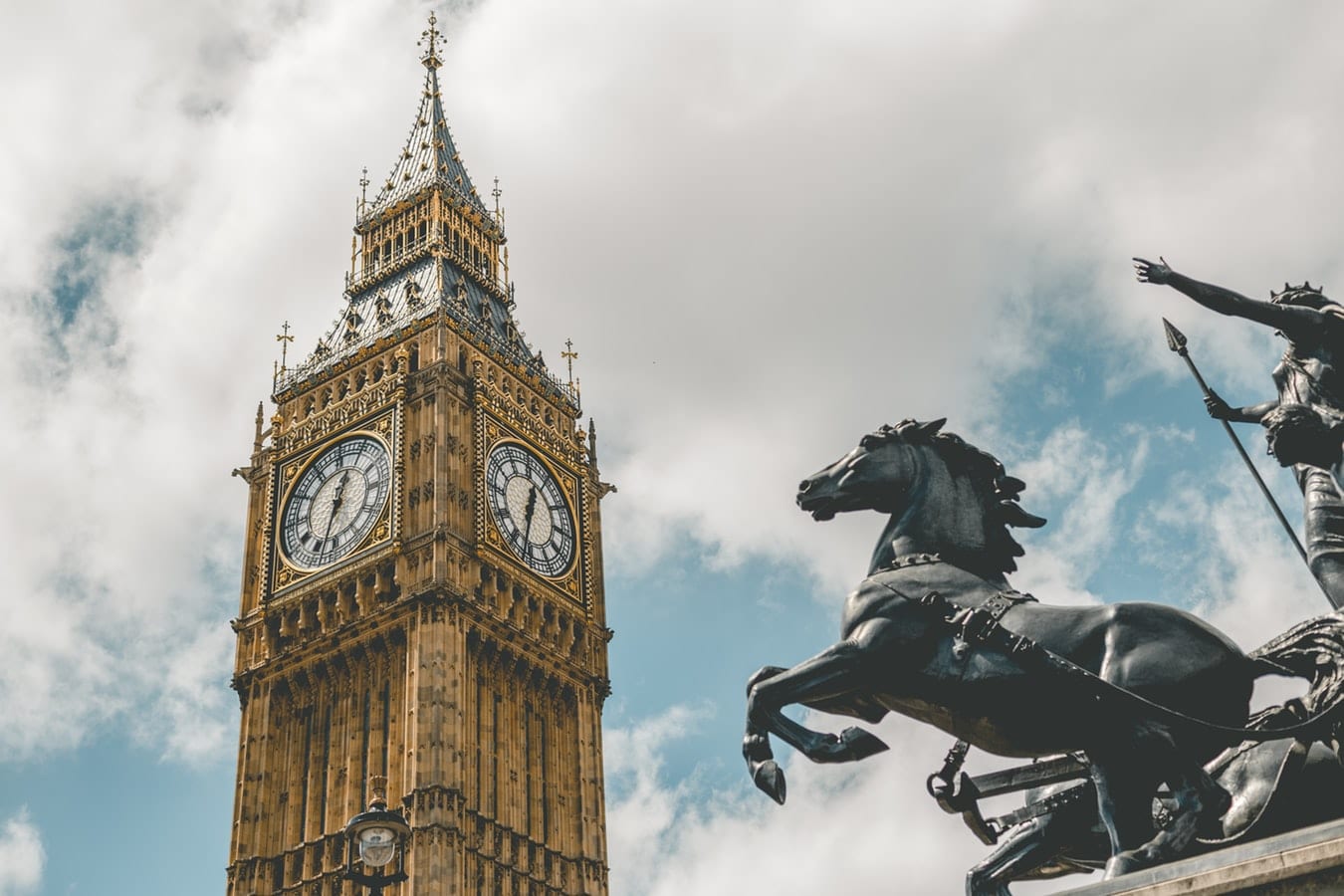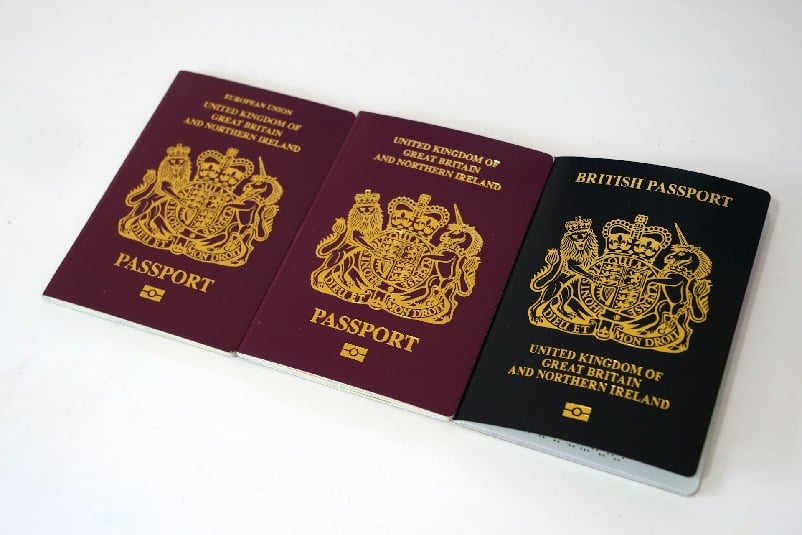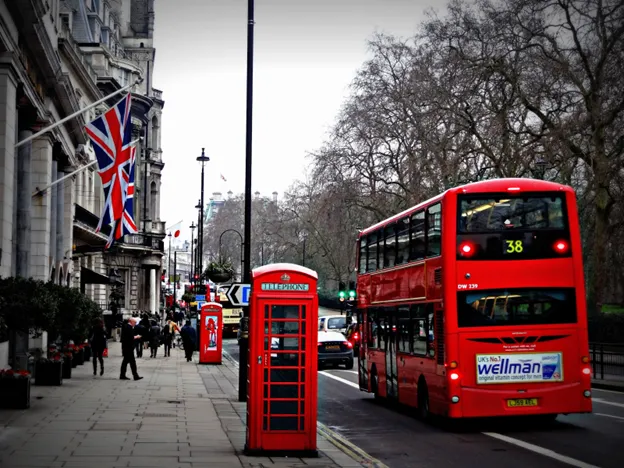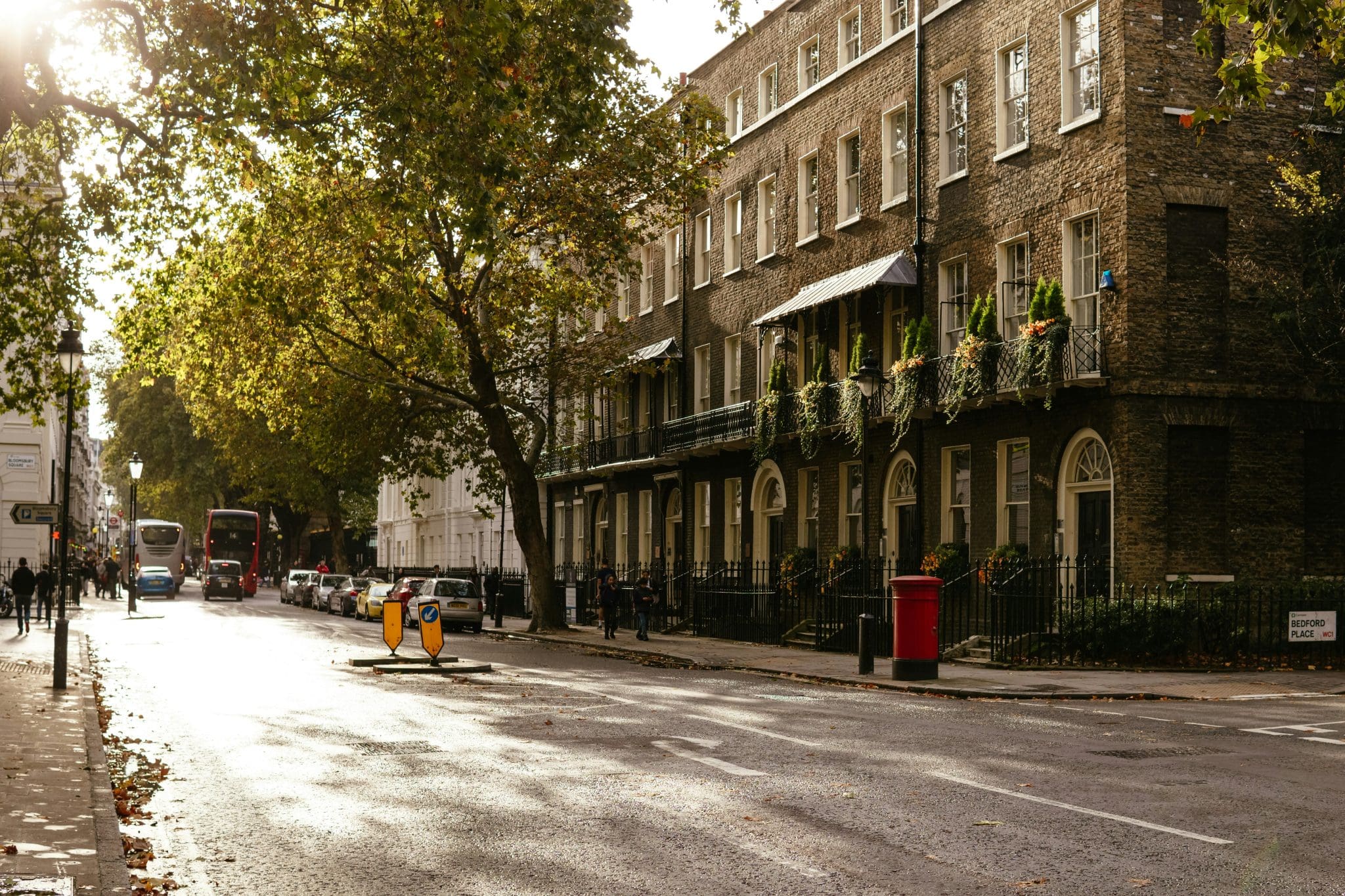British Passport Visa Free Countries
The British passport remains one of the strongest travel documents in the world, and UK passport holders can travel visa-free in many countries. This comprehensive guide will help you navigate the requirements and make the most of your adventures abroad.
Looking for guidance from visa experts for your next trip? IAS can help. Call our team today on +44 (0)333 414 9244, or get in touch online.
Read our 1001 reviews
Visa-Free Countries for UK Passport Holders
Below we have outlined a full list of all countries that are free for British passport holders to travel to without being required to obtain a visa beforehand or on-arrival.
Europe
| Albania | Andorra | Austria | Belarus |
| Belgium | Bosnia and Herzegovina | Bulgaria | Croatia |
| Cyprus | Czech Republic | Denmark | Estonia |
| Faroe Islands | Finland | France | Germany |
| Gibraltar | Greece | Hungary | Iceland |
| Ireland | Italy | Kosovo | Latvia |
| Liechtenstein | Lithuania | Luxembourg | Malta |
| Moldova | Monaco | Montenegro | Netherlands |
| North Macedonia | Norway | Poland | Portugal |
| Romania | San Marino | Serbia | Slovakia |
| Slovenia | Spain | Sweden | Switzerland |
| Ukraine | Vatican City |
Asia
| Armenia | Brunei | Georgia | Hong Kong |
| Japan | Kazakhstan | Kyrgyzstan | Macao |
| Malaysia | Mongolia | Oman | Palestinian Territories |
| Philippines | Qatar | Singapore | South Korea |
| Taiwan | Thailand | Turkey | United Arab Emirates |
| Uzbekistan | Vietnam |
North America and Caribbean
| Anguilla | Antigua and Barbuda | Aruba | Bahamas |
| Barbados | Belize | Bermuda | Bonaire |
| St. Eustatius and Saba | British Virgin Islands | Cayman Islands | Costa Rica |
| Curacao | Dominica | Dominican Republic | El Salvador |
| French West Indies | Greenland | Grenada | Guatemala |
| Guyana | Haiti | Jamaica | Mexico |
| Micronesia | Montserrat | Nicaragua | Panama |
| Saint Lucia | Saint Martin | Saint Vincent and the Grenadines | St. Pierre and Miquelon |
| Trinidad and Tobago | Turks and Caicos Islands |
South America
| Argentina | Bolivia | Brazil | Chile |
| Ecuador | Falkland Islands | French Guiana | Paraguay |
| Peru | Suriname | Uruguay | Venezuela |
Oceania
| Cook Islands | Fiji | French Polynesia | Kiribati |
| Marshall Islands | Micronesia | New Caledonia | Niue |
| Vanuatu | Wallis and Futuna |
Africa
| Angola | Botswana | Cabo Verde | Eswatini |
| Gambia | Lesotho | Malawi | Mauritius |
| Mayotte | Morocco | Mozambique | Réunion |
| Rwanda | São Tomé and Príncipe | Senegal | South Africa |
| Tunisia | Zambia |
What are Visa-Free Travel Duration Limits per Country?
Visa-free travel duration limits refer to the maximum number of days a traveller can stay in a country without needing a visa, which varies by destination. These limits exist to regulate the length of stay for foreign visitors in the country, ensuring a safer immigration process for the country.
Those who wish to spend extended periods of time in a foreign country (such as over 3-6 months) will usually require an appropriate visa to do so, which the local government needs to approve. Examples of visas offered to long-term stays include work visas, investment visas, and student visas.
3 Month Visa-Free Travel
Many countries allow permits for up to 90 days. Around the world, these include:
Asia and the Middle East: Brunei, Japan, South Korea, Taiwan, Turkey, UAE
Americas: Argentina, Bolivia, Brazil, Canada, Chile, Colombia, Costa Rica, Ecuador, Haiti, Nicaragua, Panama, Trinidad and Tobago, Suriname, Uruguay, Venezuela
Africa: Botswana, Morocco, Senegal, Seychelles, South Africa, Tunisia
Oceania: Kiribati, Marshall Islands
Schengen Area & Europe
For UK passport holders, the Schengen Area is particularly easy to travel to without requiring a visa, allowing up to 90 days of travel within a 180-day period across multiple countries.
The Schengen Area is a group of 27 European countries that have abolished passport and other types of border control at their mutual borders, allowing for free movement of people within the zone. Most countries in the EU are also in the Schengen Area. The Schengen Area allows British travellers to move across the borders of its member states with ease for up to 90 days. You can also spend up to 90 days in just one Shengen country.
Other European countries also offer up to 90 days visa free for British passport holders, though restrictions may apply. This includes Albania, Andorra, Belarus, Bosnia & Herzegovina, Bulgaria, Cyprus, North Macedonia, Moldova, Montenegro, Serbia, Switzerland and Ukraine.
Is your passport valid for your next trip abroad? If you’re feeling confused or unsure about your travel rights to your destination country, IAS can help. Contact our expert immigration team online or call us today on +44 (0)333 414 9244 for up-to-date advice and guidance for your trip.
Above 90 days
Some countries offer very flexible visa-fee stays to UK passport holders. For example, the following countries offer 180 days visa-free to (though may be subject to some restrictions):
- Armenia
- Barbados
- Costa Rica
- Dominica
- Ecuador
- El Salvador
- Grenada
- Jamaica
- Mexico
- Montserrat
- New Zealand
- Peru
- St Kitts & Nevis
- St Vincent and the Grenadines
The Dominican Republic and The Bahamas, Fiji, and Vanuatu offer British passport holders 4 months. Georgia, located in the Caucasus Mountains, offers a very generous one year visa-free period, allowing visitors to truly immerse themselves in the country and culture. Please note that the exact length of stay in these nations can sometimes depend on the discretion of immigration officers, and is based on the assumption that you have not committed any crimes or overstayed your visa-free access period during this time.
Visa-Free Entry Requirements and Restrictions
While UK passport holders enjoy visa-free travel, certain entry requirements apply. Many countries require passports to be valid for at least six months upon arrival or for a minimum of three months beyond the intended departure date, especially in the Schengen Area.
Visa-free entry is typically allowed for tourism, leisure, and short-term business travel. However, if you intend to earn an income or have other reasons for spending extended periods of time in a country, you will likely need to follow a different immigration route and apply for a work visa or resident permit.
Additionally, some countries require electronic travel authorizations (ETAs) or visas on arrival, which may involve fees and proof of documentation, and may require further clarification from the immigration officers at the border.
Recent Changes or Additions to Visa-Free Countries
Visa requirements in various countries can change regularly, so it’s crucial to check the most recent updates from the UK government or the tourism board of your destination one to two weeks before your planned travel to avoid any unfortunate surprises at immigration.
Below, we have outlined recent changes for visit visa-free permissions for British tourists.
Honduras and Namibia: For Honduras, since June 2023 British citizens have faced stricter entry requirements, as the visa-free regime was cancelled due to Britain requiring stricter immigration options for Honduras citizens travelling to the UK. Additionally, as of April 2025, travellers heading to Namibia now need to obtain a visa prior to arrival, marking a shift in their entry policies.
Iraq and E-Visas: British travellers can no longer secure a visa on arrival for Iraq, necessitating an advance application for an eVisa.
Schengen Area and the European Union: Looking ahead, the Schengen Area will implement a new Entry/Exit System (EES) in October 2025, designed to streamline border control and enhance cross-border security. Furthermore, starting in 2026, most visa-exempt travellers entering the EU will be required to submit ETIAS applications.
New eVisa Requirements: In 2025, new eVisa requirements will also be introduced for travellers heading to Somalia and Cuba, reflecting a broader trend of tightening entry regulations worldwide.
Updates on Schengen Area Travel from 12th October 2025
The European Union will launch a new Entry/Exit System (EES) on October 12, 2025, requiring UK citizens traveling to the Schengen Area to provide fingerprints and a photo upon entry and exit. This change is expected to lead to longer queues at border crossings as the system is implemented.
In addition to the EES, the European Travel Information and Authorisation System (ETIAS) will be introduced in 2026, impacting most visa-exempt travellers, including UK citizens. Starting then, these travelers will need to apply for and pay for travel authorisation through ETIAS before entering the EU and EEA countries.
Visa on Arrival for UK Passport Holders
Visa on arrival (VOA) is a travel authorisation that allows travellers to obtain their visa at the airport or border upon entering a country. This is different to visa-free entry permits, as being able to travel visa free means that you can enter a country without needing a visa at all.
Below is a list of the countries that require British passport holders to apply for a visa on arrival:
Asia and Middle East: Bahrain, Bangladesh, Cambodia, Comoros, Indonesia, Jordan, Kuwait, Laos, Lebanon, Maldives, Myanmar, Nepal, Pakistan (electronic authorisation to obtain VOA), Saudi Arabia, Sri Lanka, Tajikistan, Timor-Leste, United Arab Emirates.
Oceania: Palau, Samoa, Solomon Islands, Tonga, Tuvalu
Africa: Burkina Faso, Burundi, Comoros, Djibouti, Egypt, Ethiopia, Guinea-Bissau, Madagascar, Saint Helena, Sierra Leone, Somalia, Tanzania, Zimbabwe
Visa on Arrival Requirements for United Kingdom Passport Holders
Generally, the procedure for obtaining a Visa on Arrival (VOA) at a destination country’s entry point is straightforward, and typically involves the following steps:
- Locate the VOA Section: Look for a designated area in the airport for VOA applications. You should be able to ask an airport staff member to help you find the area
- Complete Paperwork: Fill out the required forms, which usually ask general questions including your name and passport number, the address you will be at or are travelling to first during your stay, the airline details of your arrival flight and sometimes the details of your departure flight
- Payment: some countries will require you to pay a visa fee, which you can check in advance through the country’s tourism board online
- Provide Documentation: You will be required to hand over your Visa on Arrival form along with your passport at the immigration counter. If you had to pay for the visa, you will need to show proof of payment too
- Issuance: An immigration officer will issue the visa, allowing entry and stay for the specified duration
Specific Procedures/Exceptions
Travellers should verify the specific VOA requirements for their destination, as procedures and availability can vary.
- Iraq: British citizens can no longer receive a VOA; they must apply for an e-visa at least 24 hours before travel
- Timor-Leste: VOA is available only at Presidente Nicolau Lobato International Airport or Dili Sea Port
- Ethiopia: VOA is obtainable only at Addis Ababa Bole International Airport
E-Visa Application Countries for United Kingdom Citizens
An eVisa is a digital visa obtained online, typically sent to the applicant via email. UK citizens must apply for an electronic visa (eVisa) before travelling to specific countries.
Popular Countries Offering E-Visa Options for UK Citizens
Several countries require UK nationals to obtain an eVisa, including:
- Azerbaijan
- Benin
- Bhutan
- Burkina Faso
- Cameroon
- India
- Iraq
- Mauritania
- Myanmar
- Pakistan
- Uganda
- Vietnam
Step-By-Step e-Visa Application Process
Applying for an electronic visa (eVisa) allows foreign visitors to apply for a visa without visiting a physical application centre, and is a fully digital application process.
In most cases, the process of applying for an e-Visa online is straightforward. The government or tourist board website of the country you intend to travel to usually offers the online visa application.
- Find and complete the visa form: Fill out the eVisa application form on the official website
- Correct Information: ensure that the information you provide is truthful and fully accurate, as any incorrect information could result in the application being denied or problems crossing the border at immigration. Double check that your name and passport details are completely accurate
- Document Upload: If required, upload any additional documents the application asks for, such as a recent passport-sized photograph
- Fee Payment: Pay the applicable visa fee through the online payment system
- Application Submission and Awaiting Approval: Once you have submitted your application, you will need to wait for the authorities to approve it. Generally, if you are only applying for a tourist or business visa, this will unlikely take longer than one week – however, it is vital you check the approval time of your visa to make sure that you leave plenty of time for the visa to be approved before you arrive at your destination
- Visa Approval: Once your visa is approved, you will receive a confirmation email detailing your visa status, often including the eVisa in PDF format
- Print Document: Though many countries allow you to show the digital copy of your visa on your phone, it is advised that you print a copy of the eVisa document to present when crossing the border just in case
Have you applied for an e-Visa but received an application refusal? IAS can help. Our team of expert immigration lawyers can review your visa refusal details and your initial application, guiding you on the most effective next steps to take. To speak to one of our advisors today, you can get in touch online or call us on +44 (0)333 414 9244.
Countries Requiring Visas for United Kingdom Citizens
Some countries require you to apply for a visa at their embassy or consulate in your local area. These are known as ‘traditional’ or ‘standard’ visas and will likely take considerable time to arrange, as you will need to travel to the closest embassy and print out relevant documents to include with your application.
The countries listed below typically require British citizens to apply for a standard visa at their embassy or consulate prior to travel. Some destinations listed below are known to have security concerns, and so it is important to review the UK government travel advisory information for that country close to your intended time of travel.
As a result of stern travel warnings, in order to apply for a standard visa to a high-risk country, you may be asked to attend an interview or to provide significant amounts of detail to validate your reasons for travel.
- Afghanistan
- Algeria
- Central African Republic
- China (mainland)
- Congo (Republic of the)
- Eritrea
- Ghana
- Honduras
- Iran
- Liberia
- Mali
- Nauru
- Niger
- North Korea
- Russia
- Somalia
- Sudan
- Turkmenistan
- Yemen
Application Process for Standard Visa
The process for applying for a standard visa (also referred to as a traditional visa or regular visa) typically requires the applicant to interact directly with the destination country’s diplomatic representation.
- Locate the Nearest Consulate or Embassy: You will be required to locate the nearest embassy to book your visa application appointment. Please note there may be some significant travel cost associated with this step, particularly if you live far from London, where most embassies are located
- Document Submission: The application requires you to include a variety of different documentation. You will be required to leave your passport at the embassy whilst your visa application is processed, so be sure you do not book any travel during this time
- The documentation required for the application typically includes:
- A valid passport that meets the minimum validity period requirements of the country, e.g. it has a minimum of six months of validity left
- A passport-sized recent photograph of yourself
- Your planned travel itinerary whilst visiting the country, including details of accommodation or places you intend to visit
- Proof of financial means: some visas may require this information to ensure that you are able to afford a return flight
- Any other information: this will be outlined in the visa application process. Other information that could be required might include proof of birth, marriage or death certificates, personal or relational connections you may have in the destination country, or a letter clearly detailing your reasons and intentions for travel
- Fee Payment: at the appointment, you will be required to pay the visa fee. The cost will vary according to which country you are applying for
- Verification and Issuance: Once the application is approved, the visa is typically stamped in your passport in advance of arrival
It is essential for British passport holders to check the specific visa requirements for your destination country before planning a trip to ensure you have the appropriate documents and permissions for your visit.
How Can IAS Help You?
Travelling abroad is exciting, and with such a strong passport, British passport holders have significant travel advantages as most countries allow flexible and visa-free travel.
However, travelling can become much more complicated if you are travelling for work, or if you have specific reasons for travelling to a country that are beyond the normal allowances offered for tourism and business purposes. Some countries are very complicated to travel to, due to safety concerns, travel restrictions, or political challenges.
That’s why IAS is here. We have a team of expert immigration lawyers who can support and advise you on all of your travel queries – whether you need help completing an e-Visa online, or need support with a complex visa application at an embassy, our team can help. For more information, get in touch online or call us on +44 (0)333 414 9244.
Table of Contents
Table of Contents will appear here.Legal Disclaimer
The information provided is for general informational purposes only and does not constitute legal advice. While we make every effort to ensure accuracy, the law may change, and the information may not reflect the most current legal developments. No warranty is given regarding the accuracy or completeness of the information, and we do not accept liability in such cases. We recommend consulting with a qualified lawyer at Immigration Advice Service before making any decisions based on the content provided.
Services we Provide
Frequently Asked Questions
Yes, some countries do allow you to travel with less than three months validity on your passport. Popular destinations allowing individuals with UK passports to enter the country with less than 3 months validity include Ireland, Japan, Hong Kong, South Africa, and the Maldives.
However, we strongly advise that you aim to renew your passport before it has 6 months of validity left, as some countries require a minimum of 6 months validity and having less could greatly inhibit your travel options, and could cause challenges for you if you wish to or decide to stay longer in a country than your passport validity allows.
The UK formally withdrew from the EU on 31 January 2020, and British citizens forfeited the rights of EU citizens when the transitional period ended on 31 December 2020. Some key changes this made to British national travel rights include:
- Passports must be valid for at least three months beyond the date of intended departure from the Schengen Area
- British citizens may need a visa or permit if they wish to work or stay for more than 90 days in the EU or Schengen area
- British citizens lost certain rights concerning consular protection when traveling in non-EU countries, such as when a British citizen is in a non-EU country where there is no British embassy, they no longer have the right to consular protection from the embassy of any other EU country present in that country
















